Using historical scholarship
There is a long tradition of history teachers using historical scholarship whether to shape their enquiry questions using real questions that academic historians pursued, to gain new knowledge for enriching lessons or simply to keep inspiring the passion that fired their first love of history so that they can display it to pupils in the classroom itself. A tradition within this is the curriculum component ‘Interpretations’ - a sustained fixture of England’s national curriculum for history since 1991 which has spawned its own tradition of shared practice, research and debate. If you want to find out specifically about ‘Interpretations of history’, where there will be much reference to historical scholarship, go to Interpretations. Read more
-
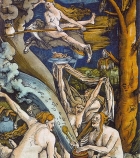
Shaping macro-analysis from micro-history
ArticleClick to view -
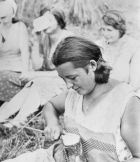
Shaping the debate: why historians matter more than ever at GCSE
ArticleClick to view -

Teaching Year 9 about historical theories and methods
ArticleClick to view -

Teaching Year 9 to take on the challenge of structure in narrative
ArticleClick to view -

Teaching pupils how history works
ArticleClick to view -
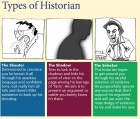
Teaching students to argue for themselves - KS3
ArticleClick to view -

The Harkness Method: achieving higher-order thinking with sixth-form
ArticleClick to view -

The mechanics of history: interpretations and claim construction processes
ArticleClick to view -

Triumphs Show 164: interpretations at A Level
ArticleClick to view -

Triumphs Show 167: Keeping the 1960s complicated
ArticleClick to view -
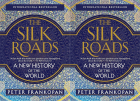
Triumphs Show: Embracing scholarship to guide Year 7 on an exploration of the Silk Roads
ArticleClick to view -

Using nominalisation to develop written causal arguments
ArticleClick to view -

Waking up to complexity
ArticleClick to view -
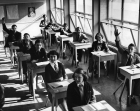
What Have Historians Been Arguing About... Histories of education – and society?
ArticleClick to view -

What can rituals reveal about power in the medieval world? Teaching Year 7 pupils to apply interdisciplinary approaches
ArticleClick to view -

What have historians been arguing about: African history in the precolonial period?
ArticleClick to view -

What’s the wisdom on… Evidence and sources
ArticleClick to view -

Working with Boudicca texts - contemporary, juvenile and scholarly
ArticleClick to view -

Year 8 and interpretations of the First World War
ArticleClick to view -

‘This extract is no good, Miss!’
ArticleClick to view

